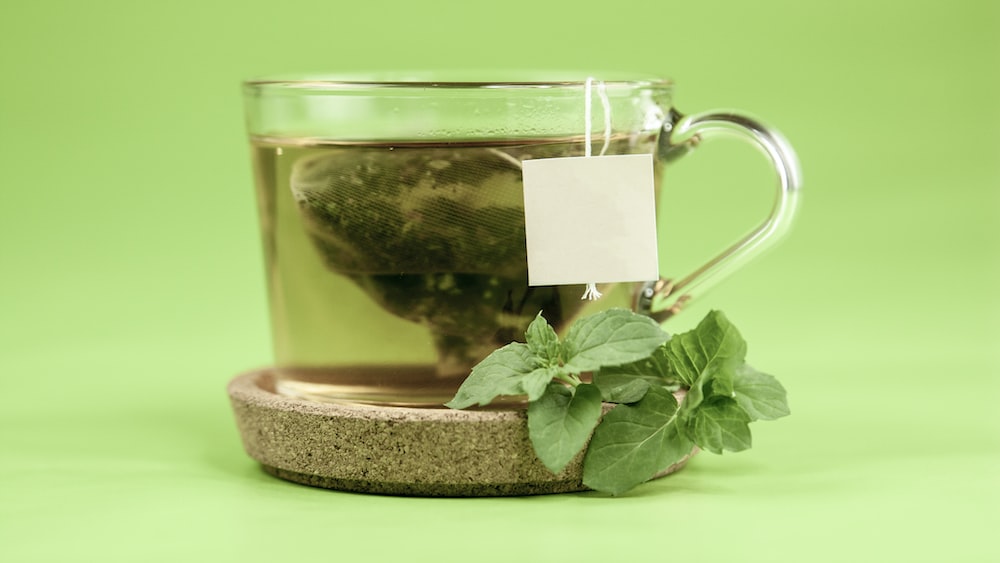Rooibos Tea Vs Green Tea: Unveiling The Health Benefits

Rooibos Tea Vs Green Tea: Unveiling The Health Benefits
If life were a salsa party, and beverages were the dancers, teas would definitely be the flamboyant and rhythm-savvy Latino couple constantly stealing the show. In the world of teas, the Swan Lake performance might be given to some common types, usually the classic black and herbal infusions. But today folks, we are arranging front row seats to witness a dance-off or let’s call it a face-off – between two unconventional tea types: Rooibos Tea vs Green Tea.
These two moléculares magnificas have been creating waves in the tea cup purely on the strength of their vibrant personalities, health benefits, and unique flavors. So here’s introducing the rooibos tea, a scarlet performer from South Africa that has been stealing the limelight, all the while the green tea, a seasoned Japanese artist, has been holding its own. Sip in, and wander the world of tea with us as we explore the depths of rooibos tea vs green tea.
Understanding Rooibos Tea
Let’s begin our journey with the first contender, a red-velvet Cinderella story that boasts of a lot more than just good looks – the rooibos tea. Surfing through its complexity shall surely help us better our understanding of rooibos tea vs green tea.
What is Rooibos Tea?
Not to make the green tea jealous, but let’s spill some tea about its contender. Harvested from the strikingly beautiful landscapes of South Africa, Rooibos tea (scientifically called Aspalathus linearis) is an infusion brewed from the leaves of the Rooibos bush. Unlike the jittery cha-cha dancer, this caffeine-free tea waltzes through your system, leaving a long-lasting, sweet aftertaste. Named after the Dutch term for “red bush”, rooibos earns its moniker from the ruby hue it infuses in your tea pot.
Rooibos tea, or as it prefers to be called late at night when intertwined with a mystery novel, “Red Bush Tea,” has been adorning the tea tables for centuries. It’s prized for its unique earthy flavor, with hints of vanilla and honey – an exquisite blend for the discerning palate.
Rooibos tea, also known as Red Bush Tea, is a caffeine-free infusion with a long-lasting sweet aftertaste, prized for its unique earthy flavor and hints of vanilla and honey.
Health Benefits of Rooibos Tea
Outshining its flamboyant profile, rooibos tea has been tucked into the spotlight for some compelling health benefits. Not only does it play an excellent partner to your taste buds, but it also tutors your body in the restrained art of wellness. Jampacked with antioxidants, rooibos tea acts as a shield against harmful free radicals, ensuring you stay youthful and energetic.
Moreover, our South African superhero also tackles heart health like a champion boxer. According to a study supported by Karl R.O.S. (Rooibos Observatory of Science), regular consumption of rooibos tea led to a decrease in ‘bad’ LDL cholesterol levels and a boost in ‘good’ HDL cholesterol. This indicates that rooibos tea might be an ally in promoting cardiovascular health.
Potential Side Effects of Rooibos Tea
Just like the flamenco with its powerful footwork leads to worn-out heels, things can go awry with rooibos tea if overindulged in. Though largely harmless if consumed in moderation, rooibos tea might stir up a salsa riot if drunk in excess.
One possible side effect could be its interaction with other medications. So, if you’re a tea-fanatic undergoing treatment for a chronic illness, you might need to watch your step. Rooibos tea may interfere with chemotherapy drugs, making the tough tango with cancer therapy even trickier.
Lastly, pregnant cha-cha-cha dancers need to twist their way around rooibos tea. Some studies suggest high intake could lead to complications, so it’s best to shimmy away from rooibos or consult your doctor if you’re samba-ing for two.
Understanding Green Tea
Enough about the scarlet diva, let’s foxtrot our way to the seasoned performer in our tea tango – the green tea. An old hand in the global tea markets, let’s unravel its jade mysteries to enrich our grille match of the rooibos tea vs green tea.
What is Green Tea?
Originating from the scenic landscapes of China and skillfully spread by the Zen Buddhists to Japan, Green tea is procured from the Camellia sinensis plant. But unlike black or oolong teas, green tea rejects the mainstream and dodges the oxidation process, helping it retain its green shade and antioxidants.
It’s like going to the party, but avoiding the heavy drinking. This allows it to retain all the health-boosting molecules that could otherwise be lost. Green tea’s mild and fresh flavor, usually possessing a slight bittery-zing, is a remarkable blend that invites a laid-back waltz with every sip.
In the world of teas, green tea is surely the freestyle, experimental dancer. Synonymous with a variety of health benefits, it keeps adding innovative and trendy moves (read health benefits and research) to its repertoire. As we step next onto the dance floor of rooibos tea vs green tea, let’s savor the nuances of their performance, from taste and health benefits to potential side effects.
Green tea retains its green color and antioxidants by avoiding the oxidation process, making it a unique and healthy choice among teas.
Health Benefits of Green Tea
Ah, good old green tea, a beverage that probably needs no introduction. Revered for centuries as an elixir of health, green tea brings many benefits. Made from the Camellia sinensis tea leaves, its natural compounds have certainly earned their bragging rights.
First off, green tea is bursting with antioxidants, specifically a category called catechins. These tiny warriors wage a constant battle against free radicals, protecting your cells from damage that could lead to diseases like cancer.
The green wonder also proves to be an ally in your weight-loss journey. What’s even more intriguing is that it’s known to boost brain function and memory. So, you’ll have a trim physique with a potential IQ boost on the side!

Potential Side Effects of Green Tea
However, despite its powerhouse of benefits, let’s not turn a blind eye to possible side effects. It’s like a superhero with a kryptonite – strong but not invincible.
Green tea does contain caffeine – not as much as your average cup of Joe, but sufficient to cause problems for those sensitive to it. Insomnia, anxiety, and jitteriness, anyone? Caffeine can also play the uninvited guest at your digestive party, leading to stomach upset or even ulcers in excess.
Also, overconsumption of green tea might interfere with iron absorption, causing anemia. Therefore, it’s recommended to maintain a balanced intake of this beverage, and as always, moderation is key.
Comparing Rooibos Tea and Green Tea
Into the arena steps our two contenders, rooibos tea vs green tea, each packing a punch with their health benefits. But take heed, the match isn’t as easy as tossing a coin or choosing your favorite color. This isn’t red vs green, folks; it’s a heady combination of culture, science, and personal preference.
Differences in Antioxidant Content
When it comes to antioxidants, the rooibos tea vs green tea match sees both teas throwing their best punches.
Green tea’s antioxidants, known as catechins, are famous for their cell protecting abilities. They reduce inflammation, and could potentially prevent some types of cancer.
In the red corner, rooibos tea brings in the super-antioxidants known as aspalathin and nothofagin. These aren’t as widely researched as catechins but hold promising potential for combating several diseases, including cardiovascular diseases.
Caffeine Levels in Rooibos Tea vs Green Tea
In the element of calm and relaxation, rooibos tea pulls ahead. It naturally contains no caffeine, making it an ideal evening beverage. On the other hand, green tea, while much lower in caffeine than coffee, might still keep sensitive people buzzed late into the night.
However, caffeine does have its pros, enhancing brain function and alertness. So the choice comes down to a restful slumber or a temporary IQ boost!
Tannins and Oxalic Acid: Rooibos Tea vs Green Tea
Drag out the microscope and you’ll notice the difference between rooibos tea vs green tea at a molecular level – mainly when it comes to tannins and oxalic acid.
Green tea is high in tannins, which achieves that characteristic astringency but might decrease iron absorption. Meanwhile, rooibos tea smiles smugly, containing almost insignificant levels of tannins.

Turn to oxalic acid, which in high levels might lead to kidney stones, and green tea comes out on top since rooibos contains higher quantities. Isn’t it fun when the tables turn?
Green tea and rooibos tea differ at a molecular level in terms of tannins and oxalic acid, with green tea having higher levels of tannins and rooibos tea having higher levels of oxalic acid.
Cardiovascular Health: Rooibos Tea vs Green Tea
For heart health, the rooibos tea vs green tea debate gets interesting. Green tea plays the preventative role here, its antioxidant properties reducing heart disease risk by improving cholesterol levels.
Swing to rooibos tea, and it’s no less impressive. It contains a powerful antioxidant called Chysoeriol, which improves circulation and reduces cholesterol. So, whether you’re team green or team red, your heart wins either way!
Frequently Asked Questions
Is Rooibos Tea better than Green Tea?
Determining if Rooibos tea is better than Green Tea can be as futile as comparing apples and oranges. Each carries its unique flavonoid profile, nutritional benefits, and even cultural significance. It certainly depends on personal preferences and health objectives. Rooibos shines for those who prefer caffeine-free petit fours with a dash of South African savannah, while Green Tea is the go-to for those seeking an ancient infusion containing a dose of zest, imbued with time-tested Asian traditions.
Can I drink Rooibos Tea if I am sensitive to caffeine?
If you’re sensitive to caffeine, Rooibos tea becomes an absolute lifesaver. This plant native to South Africa is naturally caffeine-free, providing a peaceable alternative for those who might not suit well with the hum of stimulants. So sip on without fear, your nights won’t turn into endless haikus with sleep deprivation.
Which tea is more beneficial for heart health?
Choosing the more beneficial tea for heart health can be a challenge when Rooibos and Green Tea are put in the ring. Green Tea, championed by ancient Chinese medicine, boasts antioxidants attacking free radicals, reducing inflammation, and thus potentially cutting heart disease risk. However, emerging research suggests Rooibos, the underdog brewed from a crimson-hued Afrikaans plant, may promote heart health by keeping cholesterol levels in check. The game is afoot, and more studies will declare the winner.
Are there any side effects of drinking too much Rooibos or Green Tea?
Indeed, if indulgence in either Rooibos or Green Tea transgresses into over-consumption, there may be repercussions. For Green Tea, the high caffeine levels, if unchecked, might fidget your calmness or stretch your bladder. As for Rooibos, excessive consumption can interfere with iron absorption – an affair to remember, especially for those susceptible to iron deficiencies. As nutritionist Stephanie Moore aptly recommends: moderation is key.
Conclusion
Ruminating over the match of Rooibos tea vs Green tea opens a world of wisdom rooted in diverse lands, tea cultures, and medicinal theories. It reminds that we aren’t simply consuming a beverage but partaking in a grand legacy of health and well-being. Whether you choose the FGO Organic Green Tea, harvested from the verdant terrains of Asia, or lean towards the earthy flavors of Rooibos, cradled in the heart of Afrikaan flora, your cuppa dictates your wellness narrative.
In essence, the final word isn’t about crowning a champion but uncovering an individual ‘tea-persona’. The health benefits could tilt either way, depending on underlying conditions, requirements, or caffeine sensitivity. When armed with a deep understanding, the decision becomes an informed choice rather than a frantic swing in the tea joust.
At the end of the tea party, what matters isn’t the battle of Rooibos Tea vs Green Tea but that we savor the warmth, the stories, the wisdom steeped in our cups, and the health benefits flowing with each sip. So here’s me, Zoe, donning my tea cozy, raising a toast to your health, and wishing you a blissful journey on the road of tea discovery. Till our next tea rendezvous, stay steeped in health and happiness.






